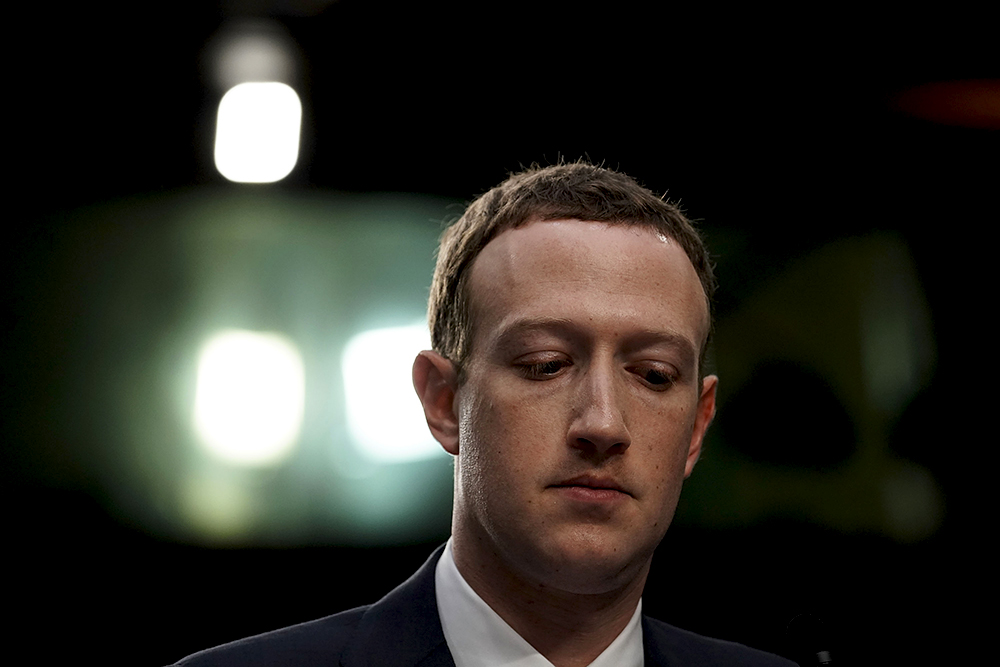
In the history of tech CEO blunders, there are few moments quite as mortifying as Mark Zuckerberg’s announcement of the Metaverse in 2021. The introduction of this virtual reality world (accessed via a dorky headset, through which the Facebook CEO envisioned we would all be dating, working and socialising over the next ten years) came in the form of a cringe-inducing video showcasing a digital environment that could only appeal to the dullest. It was an embarrassingly obvious misunderstanding of what normal people actually want from their digital technology. Along with being mocked for its clunky, unimaginative premise, it was widely observed that the announcement came just weeks after the release of the Facebook Papers – internally leaked documents revealing that, among other things, a drug cartel had been flagged as operating on the platform, and the company’s awareness of evidence that Instagram, which it also owns, was harming teenagers’ mental health.
Despite the criticism of the Metaverse, Zuckerberg committed to it. He renamed the company after the project – no longer “Facebook”, but “Meta”. He appeared delusionally enthusiastic for the Metaverse, and last year was reportedly spending more than $1bn a month on developing its interface.
But in March this year, rumours began circulating that Zuckerberg had lost interest in the Metaverse and – implementing a “year of efficiency” to recoup Meta’s decreasing profits – was quietly letting it die just 18 months after launch. Reports have claimed his focus is now on generative AI (such as ChatGPT), with Zuckerberg himself saying that the technology is “literally going to touch every single one of our products”.
Even in the context of tech billionaire inconsistency, the apparent death of the Metaverse is galling. Zuckerberg has repeatedly doubled down on his virtual reality vision, even as it has sucked in investment from other parts of the business. Last autumn the company’s value had dropped by $700bn in a year – to $268bn, from more than $1trn in September 2021 – as an earnings report revealed that $36bn had been channelled into the Metaverse. Shortly after, Zuckerberg confirmed there would be global layoffs. More than 20,000 employees have lost or will lose their jobs across two rounds in the past nine months – 20 per cent of Meta’s total workforce.
[See also: Mark Zuckerberg’s Metaverse reflects our world today]
This confirms the suspicion that vanity projects, which dramatically affect people’s livelihoods and have global repercussions, aren’t the future but merely the fleeting personal obsessions of powerful individuals. The Metaverse may end up being extremely disposable. It’s not the only time we’ve seen this happen in the past year: lest we forget Elon Musk tried to pull out of buying Twitter within three months of his initial offer. The evidence of how expensive tech CEO impulsivity can be is mounting – and it has significant ramifications for our culture.
Why are we not more outraged to see powerful men burning money for fun? Many of us are disillusioned with big tech (when the Metaverse was first announced, it was ridiculed for months online; tech CEOs are now satirised in mainstream films and on television; whole shows, such as Silicon Valley, are dedicated to the smoke and mirrors of Silicon Valley). And yet, they are rarely held to account for their dangerous mistakes. Legislatively, there is frequent talk about doing something, but the introduction of laws is outpaced by tech. Socially, there is a defeatist attitude about how to manage these billionaires and their companies – there seems to be nothing we can do.
It is easy to fall into apathy. So, too, is it easy to believe that derision is equal to action. But mockery does little to shift power away from those who are beyond parody. It will always be easier to poke fun at the failure of something like Zuckerberg’s Metaverse than it will be to realise we likely have decades of this ahead of us. Treating Zuckerberg as the joke turns us into the punchline.
For the short term at least, shifts in tech will continue. In 2021 it was NFTs, in 2022 it was metaverses, in 2023 it is generative AI. They may not disappear for ever – maybe some will even be a part of our future – but we shouldn’t be fooled into thinking they aren’t also tech-bro fashion trends, as cyclical as flared jeans and butterfly clips. This industry, so often heralded as “the future”, isn’t led by visionaries creating the world’s sturdy, foundational building blocks – it’s led by people easily swayed by what’s shiny, coveted and new. The Metaverse may be the latest victim of this expensive carelessness, but it won’t be the last.
[See also: We deserve better than the Metaverse]



